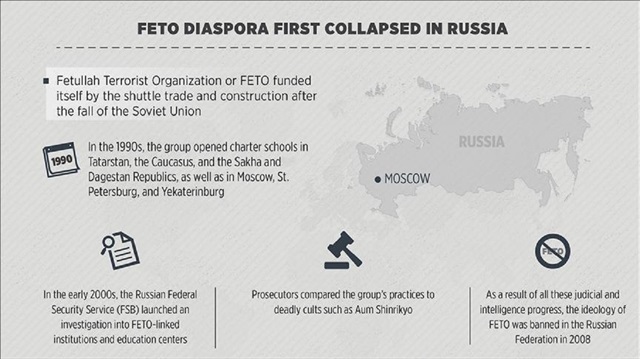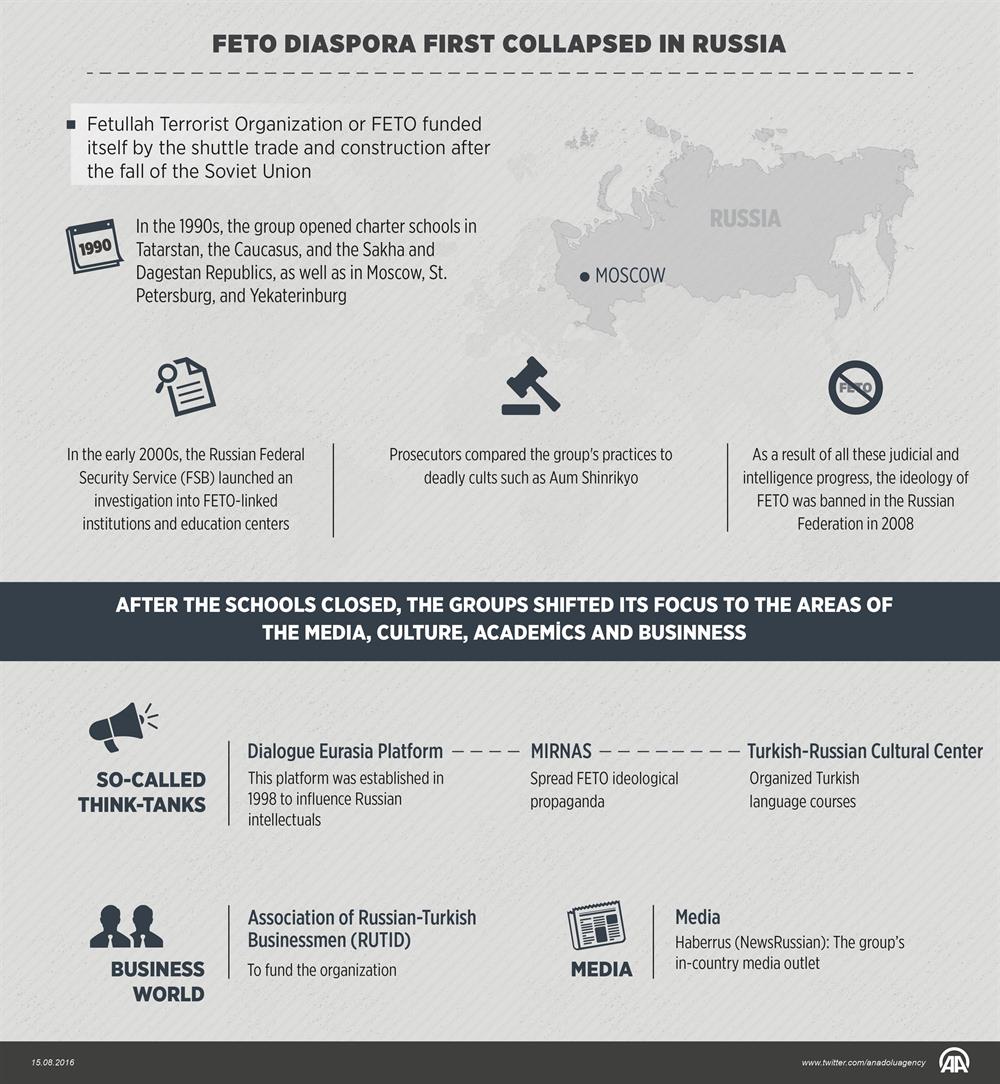
In 2007 a Russian prosecutor accused the group's ideology of being dangerous to mental health
Russia is one of the first countries where U.S.-based preacher Fetullah Gülen, whom the Turkish state accuses of being behind the deadly July 15 coup attempt, came under close scrutiny.
According to information compiled by Anadolu Agency, the roots of Gulen's Fetullah Terrorist Organization or FETÖ-linked institutions in Russia go back to 1991, right after the dissolution of the Soviet Union.
The group's network was fed in mostly Muslim-populated areas – such as Tatarstan, the Caucasus, and the Sakha and Dagestan Republics with charter schools. Gülenists also opened charter schools in Moscow, St. Petersburg, and Yekaterinburg.
To fund itself, the terror organization engaged in shuttle trade between Russia and Turkey, as well as doing construction projects in the country.
But things did not go as well as the group expected. In the early 2000s, the Russian Federal Security Service (FSB) launched an investigation into FETÖ-linked institutions and education centers.

In 2003, FETÖ schools were closed for being “a threat to national security,” and the schools' teachers were deported.
In 2007, a Russian prosecutor ruled that the group's ideology was dangerous to mental health, while a prosecutor in Tatarstan compared the group's practices to deadly cults such as Aum Shinrikyo.
As a result of these judicial and intelligence processes, FETÖ's ideology was banned in the Russian Federation in 2008.
The country also exposed the group as an armed organization. In 2010, Russian police found grenades in a raid on the group's property.
After the schools closed, the group shifted its focus to the media, culture, academics, and business. FETÖ-linked so-called think tank MIRNAS and the Turkish-Russian Culture Center are known for spreading anti-Turkish propaganda after last November's jet crisis between Turkey and Russia.
This year, at least 240 people were martyred in a defeated July 15 coup in Turkey, which the government says was organized by the followers of Gülen.
Gülen is also accused of leading a long-running campaign to overthrow the Turkish government through the infiltration of state institutions, particularly the military, police, and judiciary, forming what is commonly known as the parallel state.
Hello, the comments you share on our site are a valuable resource for other users. Please respect other users and different opinions. Do not use rude, offensive, derogatory, or discriminatory language.
The floor is all yours.








